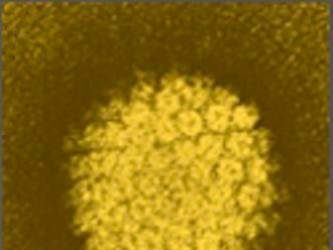FROM JAMA
For older men with low or low-normal testosterone levels, using testosterone gel doesn’t appear to worsen two key indicators of cardiovascular health – carotid artery intima-media thickness and coronary artery calcium deposition – according to results of a randomized trial published online Aug. 11 in JAMA.
Testosterone sales for “low T” have risen substantially in the past decade, even though the agent’s long-term effects on the cardiovascular health of older men are not yet known and even though there are concerns that testosterone supplementation may raise the risk of CVD events.
The Testosterone’s Effects on Atherosclerosis Progression in Aging Men (TEAAM) study was a randomized, placebo-controlled, double-blind clinical trial conducted at three U.S. medical centers to investigate this issue, said Dr. Shehzad Basaria, director of the Research Program in Men’s Health, Aging, and Metabolism, Boston Claude D. Pepper Older Americans Independence Center, Brigham and Women’s Hospital, Boston, and his associates.
Study participants were 306 community-dwelling men aged 60 and older enrolled during a 5-year period and randomly assigned to use either 1% testosterone gel (155 men) or placebo gel (151 men) every day for 3 years to treat low or low-normal testosterone levels. The mean age was 68 years. A total of 42% of the participants had hypertension, 15% had diabetes, 15% had known coronary artery disease, 27% were obese, and 43% were taking statin therapy. As expected, free testosterone levels increased in the testosterone group but did not change significantly in the placebo group.
The coprimary endpoint of rate of change in intima-media thickness, which was measured every 6 months, differed by just 0.0002 mm/year between the two study groups, a nonsignificant difference. The difference in the final measure of intima-media thickness taken at the conclusion of treatment, the other coprimary endpoint, was −10.8 Agatston units/year. Neither difference was significant. Similarly, the yearly rate of change in coronary artery calcium did not differ between the two groups, and neither did the final measure of coronary artery calcium at the conclusion of treatment. These findings persisted in several sensitivity analyses and across all subgroups of patients, such as men who were obese, men who had preexisting coronary artery disease, and men who had diabetes, the investigators said (JAMA. 2015 Aug 11. doi: 10.1001/jama.2015.8881 ). Notably, however, the two study groups also showed no significant differences in scores on the International Index of Erectile Function, either in the total score or in any of the domains of sexual function: erectile function, orgasmic function, sexual desire, intercourse satisfaction, or overall sexual satisfaction. Overall health-related quality of life also was no different between men who took active testosterone and men who took placebo, and there were no differences in the individual domains of physical function, bodily pain, vitality, role limitations due to physical problems, general health perceptions, emotional well-being, social function, or role limitations due to emotional problems.
There were few major cardiovascular disease events, and the numbers and types of events did not differ between the two study groups. Three men in the testosterone group and two in the placebo group had MIs, five in the testosterone group and two in the placebo group underwent coronary revascularization, three in the testosterone group and none in the placebo group had a stroke, and one in the testosterone group and none in the placebo group had a fatal cardiovascular disease (CVD) event. However, the investigators emphasized that this trial was not designed to assess testosterone’s effect on actual CVD events, and a substantially larger study population with many more events would be needed to examine this issue adequately. “These findings should not be interpreted as establishing cardiovascular safety of testosterone use in older men,” Dr. Basaria and his associates noted.
It is also important to note that this study assessed only two measured of cardiovascular health. Testosterone may well affect other measures, such as plaque stability, clot formation, salt retention, water retention, inflammation, “or other mechanisms that might render some men susceptible to early CVD events,” they said.
In addition, testosterone levels decreased over time in the men assigned to active testosterone gel. The researchers could not determine whether this was due to declining treatment adherence, changes in testosterone metabolism over time, progressive suppression of endogenous testosterone production because of the exogenous supplementation, or other factors.
This clinical trial was supported by Solvay Pharmaceuticals and AbbVie, which provided the testosterone and placebo gels used in the study; the Aurora Foundation; the Kronos Longevity Research Institute; the Boston Claude D. Pepper Older Americans Independence Center; and Boston University’s Clinical and Translational Science Institute. Dr. Basaria reported serving as a consultant to Eli Lilly; his associates reported ties to AbbVie, Regenron, Sanofi, Eli Lilly, Function Promoting Therapies, and Hoffman-LaRoche.




